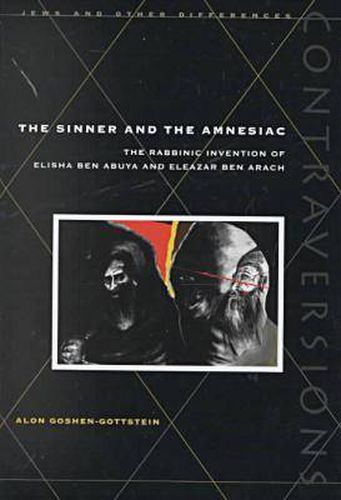Readings Newsletter
Become a Readings Member to make your shopping experience even easier.
Sign in or sign up for free!
You’re not far away from qualifying for FREE standard shipping within Australia
You’ve qualified for FREE standard shipping within Australia
The cart is loading…






Elisha ben Abuya is one of the most intriguing figures in early rabbinic literature, consistently capturing the Jewish imagination as the arch-heretic, apostate, and great sinner. Because of the vague nature of the rabbinic sources relating to him, later generations, particularly in modern times, have been able to project upon him the visions of whatever they saw as either negative or ideal in the figure of the rebel apostate. This book systematically analyzes all sources referring to Elisha ben Abuya, and in so doing, confronts the difficulties of deriving reliable information from rabbinic materials and of writing the biography of a rabbinic hero. The author argues that we have no way of discovering the historical Elisha ben Abuya; he is the product of the creative handling of traditions by later generations. Later generations do not fancifully invent the figure of Elisha but interpret and transmit earlier traditions, trying to resolve the contradictions and to interpret the enigmas they encounter. In the context of this interpretive process, a unique historical image is created, a sage who is born out of tradition, not historical memory.
$9.00 standard shipping within Australia
FREE standard shipping within Australia for orders over $100.00
Express & International shipping calculated at checkout
Elisha ben Abuya is one of the most intriguing figures in early rabbinic literature, consistently capturing the Jewish imagination as the arch-heretic, apostate, and great sinner. Because of the vague nature of the rabbinic sources relating to him, later generations, particularly in modern times, have been able to project upon him the visions of whatever they saw as either negative or ideal in the figure of the rebel apostate. This book systematically analyzes all sources referring to Elisha ben Abuya, and in so doing, confronts the difficulties of deriving reliable information from rabbinic materials and of writing the biography of a rabbinic hero. The author argues that we have no way of discovering the historical Elisha ben Abuya; he is the product of the creative handling of traditions by later generations. Later generations do not fancifully invent the figure of Elisha but interpret and transmit earlier traditions, trying to resolve the contradictions and to interpret the enigmas they encounter. In the context of this interpretive process, a unique historical image is created, a sage who is born out of tradition, not historical memory.